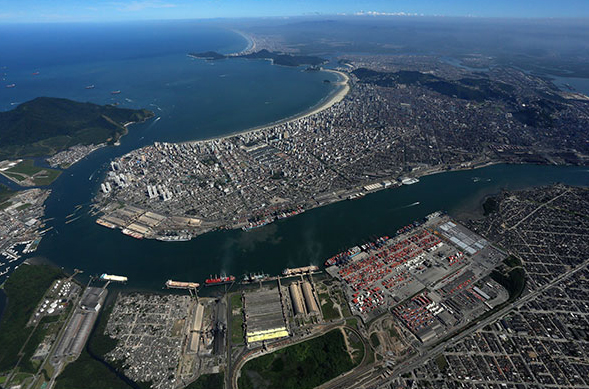Five Brazilian Ports Lead in Decarbonization Drive

With Brazil working on guidelines to decarbonize its maritime transport, the National Waterway Transport Agency (ANTAQ) has announced progress at five ports in reducing GHG (greenhouse gas) emissions. The ports were selected for an ongoing decarbonization study, implemented under Brazilian-German cooperation through the German development agency GIZ. Antaq and GIZ in 2023 signed a technical cooperation agreement to help in translating the study’s recommendations into port policy.
So far, three phases of the study have been completed. The first phase completed in 2021 reviewed international experience in port decarbonization. The second phase in 2024 evaluated emission reduction initiatives in ports as well as readiness of port infrastructures to receive vessels using clean fuels. The results of the third phase were released last week, which involved a case study of five Brazilian ports leading in decarbonization and readiness for the green transition.
The selected ports include Itaqui, Pecém Private Use Terminal, Paranaguá, Santos and the Açu private port. The ports were chosen for their strong Environmental Performance Index (EPI), ongoing energy transition projects as well as infrastructure for green hydrogen. In addition, the ports offer incentives for ships with lower carbon footprint including tariff discounts and priority berthing, which demonstrates gradual alignment with global emissions reduction targets.
Again, the ports are in the process of developing decarbonization plans. Port of Açu has already completed its plan. The main initiatives that stood out for the ports are installation of solar panels, replacing combustion engine-powered equipment with electric, and developing strategic initiatives to evaluate and implement use of low-carbon fuels.
Most importantly, of the five ports evaluated, three have GHG emissions inventories. These include the Port of Santos, Itaqui and Açu. The remaining two are in the process of contracting for the service.
“Port decarbonization is crucial to maintain Brazil’s competitiveness in global trade and meet international climate goals. Antaq and Ministry of Ports will be crucial in articulating public policies, defining progressive goals and encouraging investment in sustainable infrastructure,” said Director of Antaq Caio Farias, who is also the study’s rapporteur.
Some of the recommendations from the study include the creation of a National Green Hydrogen Plan and tax incentives to accelerate the supply and adoption of clean fuels. On partnerships, the study encouraged implementation of green corridors, which would help Brazilian cities and ports to reduce emissions from global shipping while improving air quality for coastal communities.
